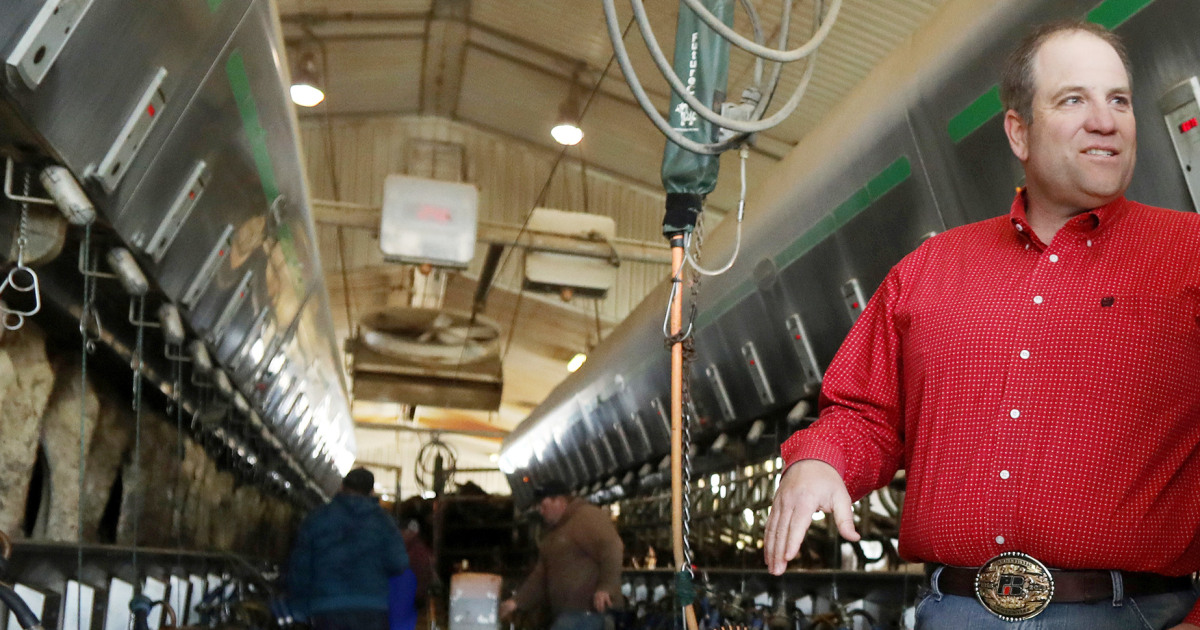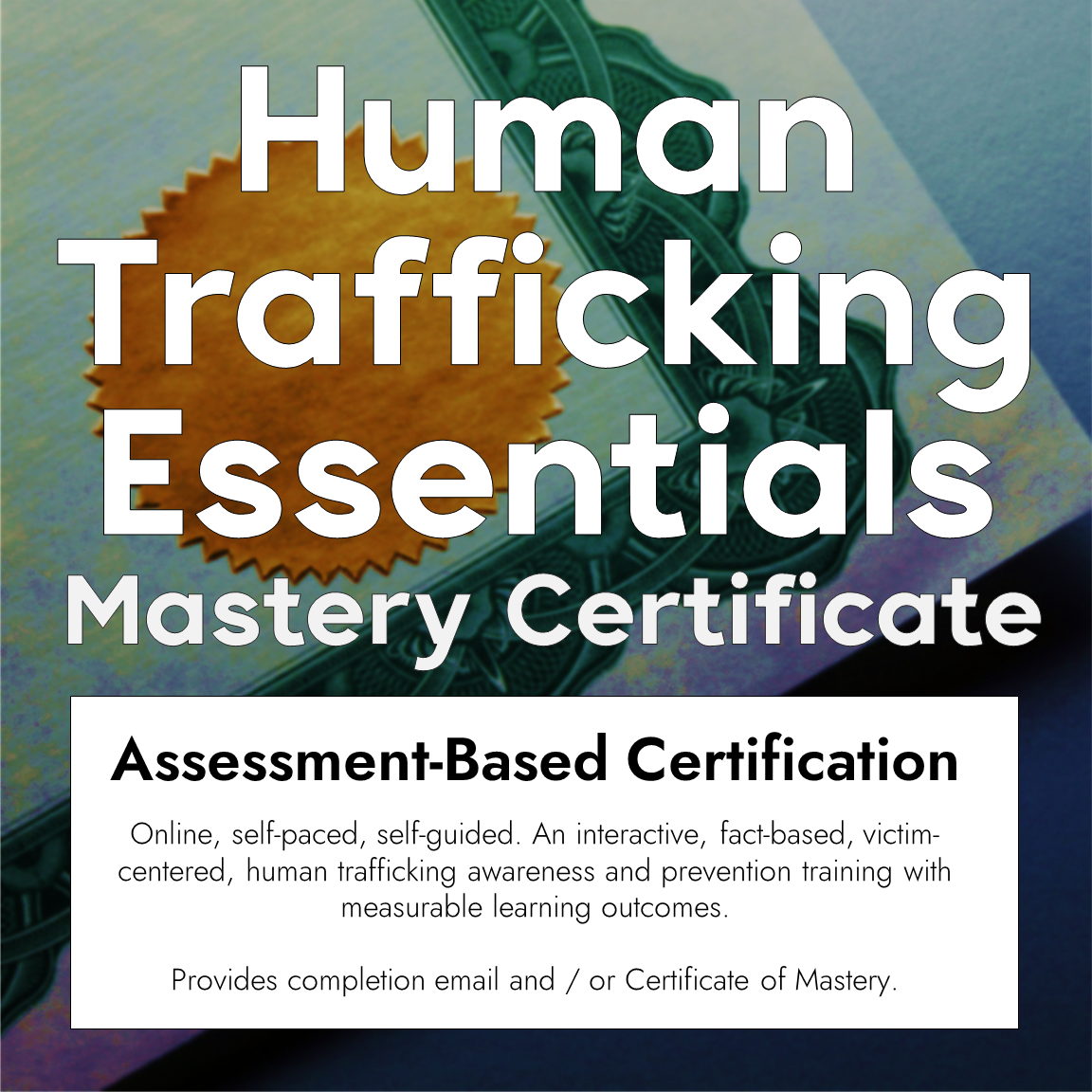Dispute between a Utah farmer and farmworkers triggers probe into fraud and human trafficking

Authorities are investigating the former president of the Utah Farm Bureau Federation over allegations of fraud and human trafficking following an altercation that left one of his farmworkers in need of medical care, the Utah Department of Public Safety confirmed to NBC News.
The probe comes as Ron Bennett Gibson, 50, resigned Tuesday from Utah's largest voluntary organization of farmers and ranchers. He put in his resignation as president four days after announcing he was taking a leave of absence. A video released last week by KSL, NBC's affiliate in Salt Lake City, caught a glimpse of what appears to be Gibson hitting a man who was working at his farm on an H-2A visa.
The organization said in a statement Wednesday it was “grateful” for Gibson's service for the past eight years, “but his mistreatment of a farm worker last week was unbecoming of a leader.” Gibson also resigned from his role on the American Farm Bureau board of directors.
The incident that triggered the chain of events occurred on Aug. 8 at Gibson's farm in Weber County.
According to an affidavit of probable cause obtained by NBC News, a Weber County sheriff's deputy arrived at the farm after receiving a 911 call from one of Gibson's farmworkers.
The farmworker said he was assaulted by Gibson. The farmworker also stated that he and several of his colleagues hadn't received four past paychecks from Gibson, according to the affidavit.
When several of the farmworkers went to the farm to confront Gibson about not being paid, there was a “small verbal altercation,” the affidavit states. The farmworker who was physically hurt showed the sheriff's deputy a video of the incident, the affidavit continued.
In the affidavit, the sheriff's deputy said the video shows Gibson telling the farmworker “to shut up in Spanish and then proceeded to back hand him across the face.” This caused the farmworker's “mouth to bleed and required medical attention.”
The video referenced in the affidavit was recorded by one of the farmworkers who confronted Gibson.
NBC News has reached out to three of the farmworkers involved. One did not respond, another did not provide comment, and the phone number for the third was not in service. NBC News is not naming the workers since they were brought to the farm under the H-2A visa program, tying their immigration status to their employment.
In general, farmworkers experience more wage theft and substandard housing conditions than most workers — and those with a fragile immigration status are more susceptible to physical violence and retaliation, according to Elizabeth Strater, the director of strategic campaigns at the United Farm Workers.
Such incidents occur to vulnerable farmworkers far more often than people realize due to limited labor protections, Strater told NBC News.
Gibson was arrested on an assault charge on Aug. 8, according to the Weber County Sheriff's Office. Later that day, he was released to pretrial services without posting bail, records show.
Gibson's arrest also prompted the U.S. Department of Labor's Wage and Hour Division to open an investigation into the incident, a Labor spokesperson told NBC News.
Following his arrest, Gibson apologized “for allowing an argument to escalate to an altercation.”
“I deeply regret the incident,” he told KSL. “I am disappointed in myself. I have deep respect for the men and women willing to work on farms across America, including mine.”
Gibson will be appearing before a court in upcoming weeks in connection to the assault charge, Steve Burton, Gibson's attorney, told NBC News.
A separate investigation involving fraud and human trafficking allegations at Gibson's farm is expected to take months, Burton said.
Gibson and his family come from generations of farmers who have been producing dairy products, growing onions and other kinds of produce on their land.
Like many farms nationwide, the Gibsons have long relied on the H-2A visa program to get migrant workers to help with produce harvest. In addition to their wages, the farmers must provide food, transportation and housing to the workers.
“This is a population that is very difficult for them to advocate for themselves when so much of their lives is under the control of their employer,” Strater said, adding that “retaliatory deportation is not unheard of” since the worker's immigration status is intrinsically tied to their jobs at the farm.
Members of Congress have long been advocating for the Farmworker Modernization Act and the Fairness for Farm Workers Act, both of which would help improve compensation for farmworkers, provide overtime, add minimum wage protections, update the H-2A program and include pathways to earn permanent legal status, among other provisions.
Even Gibson himself has advocated for improvements to the program such as allowing for more farmworkers with H2-A visas and adjusting minimum wage parameters.
According to Burton, the farmworkers who confronted Gibson on Aug. 8 lived in the same housing unit, one of multiple ones at the farm.
In speaking to KSL last week, the farmworkers said they were living there with the smell of feces and urine from an apparent overflowing septic tank.
Burton said the housing unit where these farmworkers lived had just been remodeled and passed inspections before the workers moved in to work this year's harvest.
Gibson believes the unit's septic tank used for basic sewage treatment had been filling up quicker than usual due to excessive rain since Utah has been enduring some of the wettest months in the state's history, meaning it needed to be emptied more often, Burton said, adding that the company in charge of emptying the tank was called every time it was full.
With rain delaying their harvest and the price of their crop dropping by more than half, Gibson was worried he was not going to be able to pay his workers at the same pace and rate as he had in years past, Burton said.
Instead of getting paid the minimum every two weeks for working eight hours a day, five days a week, the farmworkers reached a verbal agreement with Gibson that could result in them working more hours to get more money, Burton said.
Part of the verbal agreement, he said, was that Gibson would hold on to every other paycheck until the harvest was done. The farmworkers were going to receive those paychecks once they were done with the harvest, Burton said, adding that one of the farm's managers distributed the remaining checks to the farmworkers following the altercation though the harvest wasn't finished.
Gibson's bank records show that all the back-pay checks were cashed or deposited, according to Burton.
The workers who confronted Gibson haven't returned to the farm since the incident, he said, but dozens of other workers, some locals and others temporary migrant workers, who were not involved in the dispute, are currently living and working on the farm.
This “Eyes on Trafficking” story is reprinted from its original online location.
Fair Use Notice: The PBJ Learning Knowledge Vault is dedicated to advancing understanding of various social justice issues, including human trafficking and related topics. Some of the material presented on this website may contain copyrighted material, the use of which has not always been specifically authorized by the copyright owner. We are making such material available in our efforts to promote education and awareness of these important issues. There is no other central database we are aware of, so we put this together for both historical and research purposes. Articles are categorized and tagged for ease of use. We believe that this constitutes a ‘fair use' of any such copyrighted material as provided for in section 107 of the US Copyright Law. In accordance with Title 17 U.S.C. Section 107, the material on this site is distributed without profit to those who have expressed a prior interest in receiving the included information for research and educational purposes. For more information on fair use, please visit: “17 U.S. Code § 107 – Limitations on exclusive rights” on Cornell Law School's Legal Information Institute.

ABOUT PBJ LEARNING
PBJ Learning is a leading provider of online human trafficking training, focusing on awareness and prevention education. Their interactive Human Trafficking Essentials online course is used worldwide to educate professionals and individuals how to recognize human trafficking and how to respond to potential victims. Learn on any web browser (even your mobile phone) at any time.
More stories like this can be found in your PBJ Learning Knowledge Vault.
EYES ON TRAFFICKING
This “Eyes on Trafficking” story is reprinted from its original online location.
ABOUT PBJ LEARNING
PBJ Learning is a leading provider of online human trafficking training, focusing on awareness and prevention education. Their interactive Human Trafficking Essentials online course is used worldwide to educate professionals and individuals how to recognize human trafficking and how to respond to potential victims. Learn on any web browser (even your mobile phone) at any time.
More stories like this can be found in your PBJ Learning Knowledge Vault.

